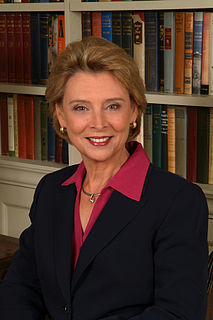A Quote by Obiageli Ezekwesili
Do our children now have to choose between getting an education and dying? Some of us cannot move on and accept that kind of society.
Related Quotes
We can glut ourselves with how-to-raise children information . . . strive to become more mature and aware but none of this will spare us from the . . . inevitability that some of the time we are going to fail our children. Because there is a big gap between knowing and doing. Because mature, aware people are imperfect too. Or because some current event in our life may so absorb or depress us that when our children need us we cannot come through.
The path to a better future goes directly through our public schools. I have nothing against private schools, parochial schools and home schooling, and I think that parents with the means and inclination should choose whatever they believe is best for their children. But those choices cannot compete, and cannot come at the expense of what has been -- and what must always be -- the great equalizer in our society, a free and equal public education.
My concern is the holistic development of society. No one should go back, everyone must move forward. Enough time has been spent going backwards; now let us pledge to stride ahead, whether it's in education, health, agriculture or education of our daughters. This Government belongs to the poor. It is to support the destitute.
I spent the past week here in India getting a sense of the reality of HIV and AIDS in people's lives. Fathers and mothers are dying, leaving children with no support. Stigma and discrimination is ruining the family lives. There is an urgent need for education, information, and increased awareness of HIV and AIDS. The response needs to be now. We cannot afford to become fatigued.
In the space between stimulus (what happens) and how we respond, lies our freedom to choose. Ultimately, this power to choose is what defines us as human beings. We may have limited choices but we can always choose. We can choose our thoughts, emotions, moods, our words, our actions; we can choose our values and live by principles. It is the choice of acting or being acted upon.
The future success of our Nation depends on our children's ability to understand the difference between right and wrong and to have the strength of character to make the right choices. To help them reach their full potential and live with integrity and pride, we must teach our children to be kind, responsible, honest, and self-disciplined. These important values are first learned in the family, but all of our citizens have an obligation to support parents in the character education of our children
We are spirit children of a loving Heavenly Father who placed us in mortality to see if we would choose - freely choose - to keep His commandments and come unto His Beloved Son. They do not compel us. They cannot, for that would interfere with the plan of happiness. And so there is in us a God-given desire to be responsible for our own choices.
When we choose to be parents, we accept another human being as part of ourselves, and a large part of our emotional selves will stay with that person as long as we live. From that time on, there will be another person on this earth whose orbit around us will affect us as surely as the moon affects the tides, and affect us in some ways more deeply than anyone else can. Our children are extensions of ourselves.
Just as our fingerprints are one-of-a-kind, so is our identity. Each of us is a once-only articulation of what humans can be. We are rare, unmatched, mysterious. This is why the quality of openness is so crucial to our self-discovery. We cannot know ourselves by who we think we are, who others take us to be, or what our driver's license may say. We are fields of potential, some now actualized, most not yet.
Population diminishing, even in Japan and Italy, the population is diminishing. When society can reach a sustainable place or gain comfortable income, then people tend to have fewer children. Poverty makes a chain reaction of having many children. So when society reaches some kind of level, then it will turn toward getting a smaller population.
The fundamental defect of fathers, in our competitive society, is that they want their children to be a credit to them. We all feel instinctively, that our children's success reflect glory upon ourselves, while their failures make us feel shame. Unfortunately, the successes which cause us to swell with pride are often of an undesirable kind.... Neither happiness nor virtue, but worldly success, is what the average father desires for his children.
As Indigenous peoples, we know there is more to the world. We know spirits exist. We know as women, because we're especially attuned to this kind of knowledge, that spirits exist and have a presence in our lives. Some of us are gifted and can communicate with the spirit world. Not everyone has that gift and can perceive the borders between the living and the dead and our society actively discourages us of exploring the knowledge of what many of us have already always known in our cultures.




































